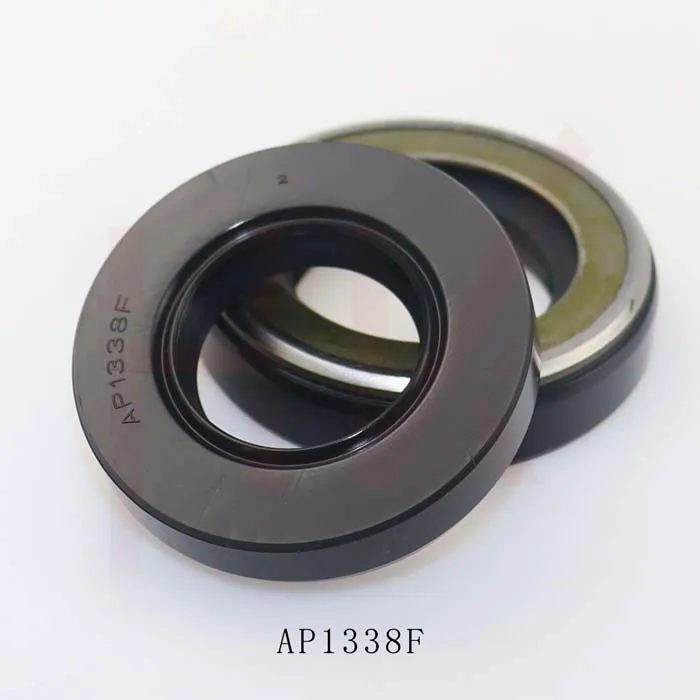Dec . 04, 2024 07:17 Back to list
Effective Sealing Solutions for Hydraulic Pump Performance and Longevity
Understanding Hydraulic Pump Seals Importance, Types, and Maintenance
Hydraulic systems are integral to a wide array of industrial and mobile applications, ranging from construction machinery to automotive systems. Central to the efficient functioning of these systems is the hydraulic pump, which relies heavily on seals for optimal performance. Hydraulic pump seals play a pivotal role in maintaining the integrity and efficiency of the hydraulic system. In this article, we will explore the importance of these seals, the types available, and essential maintenance practices to ensure their longevity.
Importance of Hydraulic Pump Seals
Hydraulic pump seals are designed to prevent fluid leakage from the pump and to keep contaminants from entering the hydraulic system. This is crucial for several reasons
1. Fluid Containment Hydraulic fluids are essential for transmitting power within a system. Any leakage can lead to a loss of efficiency, reduced performance, and increased operational costs. Effective seals ensure that the fluid remains contained within the system.
2. Contamination Prevention Hydraulic systems are susceptible to dirt, dust, and other contaminants that can compromise fluid quality. Seals act as barriers, preventing these harmful elements from entering the hydraulic circuit. This is vital for maintaining the health of the hydraulic oil, ensuring that it performs optimally and prolonging the life of the system components.
3. Maintenance of Pressure Hydraulic pumps operate under high pressure. Seals are essential for maintaining the required pressure in the system. A failure in sealing can lead to a drop in pressure, resulting in inefficient operation and potential system failure.
4. Safety In high-pressure systems, leaks can pose serious safety risks. Hydraulic fluid is under significant pressure, and a breach of integrity can lead to dangerous situations for operators and machinery alike.
Types of Hydraulic Pump Seals
There are various types of hydraulic pump seals, each designed for specific applications and conditions
. Some of the most common types include1. O-Rings These are versatile and widely used seals. They are circular and made from elastomeric materials, providing excellent sealing properties for static and dynamic applications.
2. Lip Seals Designed for rotating shafts, lip seals feature a flexible lip that adapts to the surface of the shaft, providing effective sealing against fluid escape.
hydraulic pump seals

3. Flat Gaskets Used in applications where two flat surfaces meet, flat gaskets help to ensure a tight seal and prevent fluid leakage between components.
4. V-Rings These seals are installed on the shaft and can prevent dirt and dust from entering while also containing the fluid.
5. PTFE Seals Made from polytetrafluoroethylene, these seals excel in high-temperature and high-pressure environments. Their resistance to a wide range of chemicals makes them ideal for various hydraulic applications.
Maintenance of Hydraulic Pump Seals
Proper maintenance is essential for extending the life of hydraulic pump seals and ensuring the reliability of the hydraulic system. Here are some maintenance practices to consider
1. Regular Inspections Periodically check seals for signs of wear, damage, or deformation. Early detection of issues can prevent significant leaks and costly repairs.
2. Fluid Quality Checks Always ensure that the hydraulic fluid is clean and contaminant-free. Regular fluid analysis can help identify potential problems before they affect seal performance.
3. Proper Installation Ensure seals are installed correctly according to manufacturer guidelines. An improper installation can lead to premature failure.
4. Environmental Considerations Protect hydraulic pumps and their seals from extreme temperatures and environmental factors. Consider using protective covers or installing pumps in sheltered areas.
5. Replacement Schedule Develop a replacement schedule for seals based on operating conditions and manufacturer recommendations. Proactive replacement can prevent unexpected downtime.
Conclusion
Hydraulic pump seals are an often-overlooked but vital component in the efficient operation of hydraulic systems. Understanding their importance, recognizing the various types available, and implementing effective maintenance strategies can significantly enhance the performance and longevity of hydraulic equipment. By prioritizing seal care, industries can ensure safe, efficient, and reliable hydraulic operations.
-
The Trans-formative Journey of Wheel Hub Oil Seals
NewsJun.06,2025
-
Graphene-Enhanced Oil Seals: Revolutionizing High-Pressure Oil Sealing
NewsJun.06,2025
-
Future of Hydraulic Sealing: Advanced Intelligent TCN Oil Seals
NewsJun.06,2025
-
Don’t Let a Broken TCV Oil Seal Ruin Your Day
NewsJun.06,2025
-
Bio-Inspired Dust Seals for Better Sealing Performance
NewsJun.06,2025
-
Biodegradable and Sustainable Hydraulic Seal Materials
NewsJun.06,2025
-
Top Oil Seal Solutions for Your Industrial Needs
NewsMay.22,2025
Products categories
















